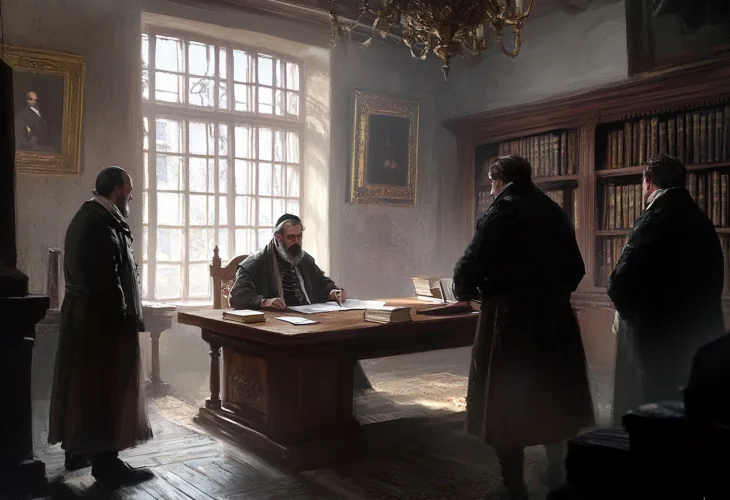History and Archaeology
How Rabbi Jonathan Eybeschutz Saved Prague’s Jews from Disaster
With wisdom and courage, one rabbi stopped a blood libel in its tracks

As Passover approached, fear gripped Jewish communities across Europe. This was the season when blood libels often reared their ugly head, vicious lies that Jews used Christian blood for matzah. These accusations, completely baseless and fueled by antisemitism, led to violent attacks, expulsions, and even massacres.
The Jewish community of Prague, one of Europe’s oldest and most respected, was no stranger to this danger. The city was home to great yeshivas and Torah scholars, but also home to deep-seated hatred. A single rumor could threaten the entire ghetto.
And that’s exactly what happened in 1725. A new blood libel began spreading through Prague, and panic set in. Everyone feared the worst, another pogrom, more arrests, more suffering. The community turned to their beloved leader, Rabbi Jonathan Eybeschutz, begging him to find a way to save them.
Rabbi Jonathan wasn’t just a respected rabbi. From childhood, he had shown brilliance in Torah, philosophy, and debate. Even as a young man, he often debated Christian clergy and intellectuals who tried to trip him up with difficult questions. But he always outwitted them, using sharp logic and deep Torah knowledge to leave them speechless.
When this new rumor began to spread, Rabbi Jonathan understood that time was short. He couldn’t simply deny the accusations, he had to do more. And he knew exactly who to turn to: the city’s ruler, a man who respected him from past debates.
With great care, Rabbi Jonathan wrote a powerful letter. He combined clear Torah reasoning with calm, logical argument. He opened with a verse from the Torah:
"You shall not eat any blood" (Vayikra/Leviticus 7:26).
He explained that the Torah strictly forbids Jews from consuming even animal blood—how much more so human blood. “If our law commands us to check even an egg for a single drop of blood, which must be removed before eating,” he wrote, “is it even possible that we would use human blood for a mitzvah?”
He went on to explain the halachic process of removing blood from kosher meat, which shows how careful Jews are to avoid even a trace of blood. The very idea of using human blood was not just offensive but it was absurd. He also warned that the accusation was a dangerous lie meant to stir up hatred and violence.
The letter was delivered to the ruler, who read it with interest. He remembered Rabbi Jonathan well and was once again impressed by his brilliance. After giving it thought, the ruler made a bold decision:
He rejected the accusation, shut down the incitement, and spared the Jewish community from disaster.
Thanks to one man’s courage, quick thinking, and powerful use of words, a pogrom was prevented, and Prague’s Jews were saved.
This story is more than a moment in history. It’s a timeless reminder of the power of truth even in dark times. Rabbi Jonathan didn’t raise his voice or call for violence. He relied on wisdom, Torah, and the clarity of truth. And it worked.
In a world where rumors, hatred, and misinformation still spread so easily, his example speaks to us today:
Even one voice can make a difference. Even one honest heart can bring light where there is darkness.

